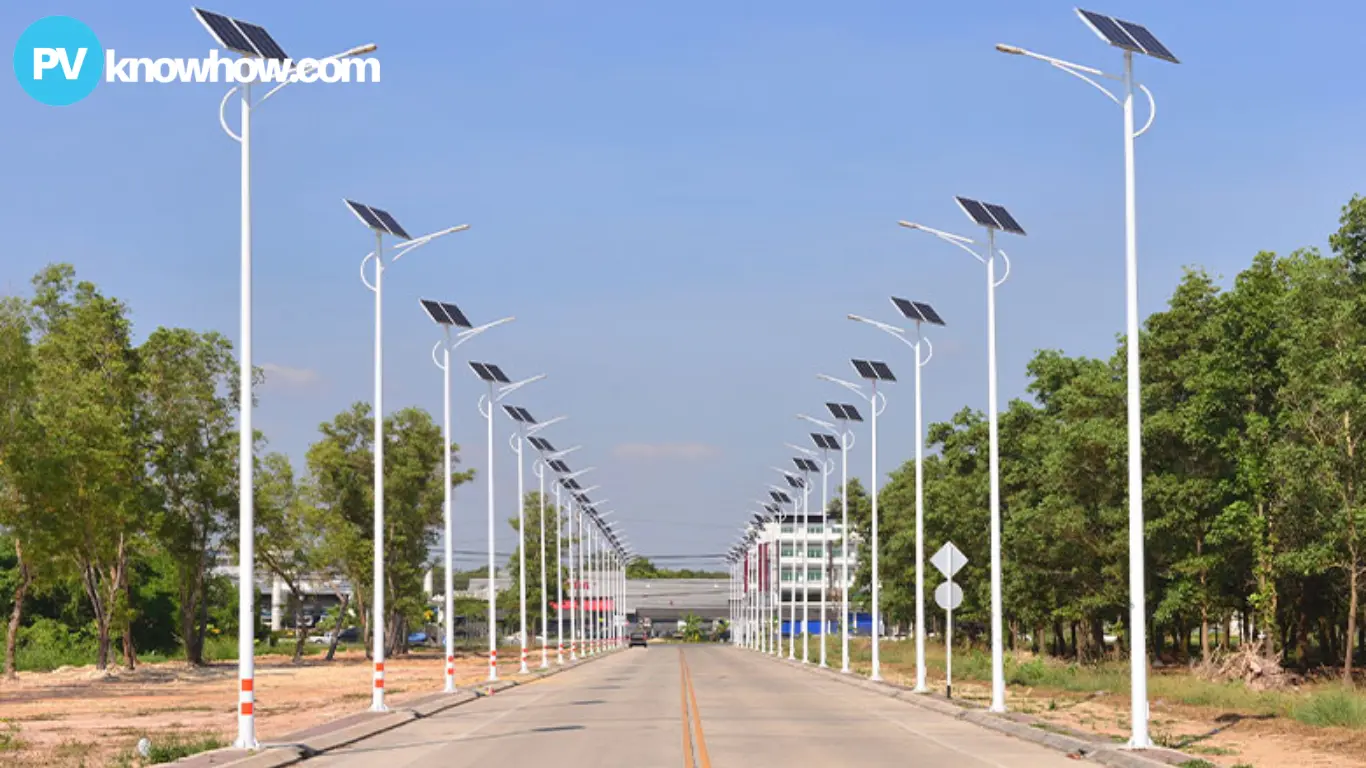The Maritime region authorities in Togo were presented with a project to install 50,000 solar street lamps, aiming to enhance rural electrification and public safety. This initiative which is led by the Agence Togolaise d'Électrification Rurale et des Énergies Renouvelables (AT2ER) targets 5,000 localities with a focus on the Savanes region.
Project Overview
On Thursday, July 25, local authorities of the Maritime region gathered in Davié - a small town situated 5 kilometers south of Tsévié - for the official presentation of Togo's groundbreaking solar street lamp project. The initiative which was launched last year aims to install 50,000 solar-powered street lamps across the country, with significant implications for rural electrification and public safety.

Solar-powered street lamps
The project which is spearheaded by the Agence Togolaise d'Électrification Rurale et des Énergies Renouvelables (AT2ER) marks a major step toward achieving the Togolese government's ambitious goal of nationwide electrification by 2030. Dr. Tchapo Singo, Director General of Energy and head of AT2ER emphasized the project's alignment with this national objective. "The project will cover 5,000 localities across different regions, with a particular focus on the Savanes region," He said.
Initially concentrated in the northern regions of Savanes and Kara, the project has already seen the installation of over 30,000 lamps. This early success set the stage for the current expansion into southern regions, starting with the Maritime area.
Sunna Design, a French company that is responsible for the installation and maintenance of the solar street lamps has played a pivotal role in ensuring the project's smooth rollout. Their expertise in solar solutions has been crucial in overcoming logistical and technical challenges inherent in such a large-scale endeavor.
Financial Backing and International Support
The project's financial foundation is robust, bolstered by a €40 million loan from France. This funding is part of the broader Rural Solar Public Lighting Program (PEP'S Rural) under the Ministry Delegate in charge of Energy and Mines. Such substantial international backing underscores the global community's recognition of Togo's efforts to transition towards renewable energy.
The workshop in Davié served as a platform to educate local stakeholders on various aspects of the project. Participants were briefed on the deployment process, security measures, and maintenance protocols for the solar street lamps.
The Prefect of Zio, Etsè Kodjo Kadévi welcomed the initiative by highlighting its potential to enhance public lighting and safety in rural communities. "This project will significantly improve the quality of life in our localities."
Broader Energy Initiatives
In tandem with the solar street lamp project, Togo is also advancing plans to construct a 25 MW solar power plant in Dapaong, northern Togo. Announced by the Regional Urgent Intervention Project in the Solar Energy Sector (RESPITE), this initiative aims to enhance access to clean and sustainable energy nationwide. The project which includes the design, supply, and installation of the solar power plant and a 40 MWh battery storage system is expected to provide electricity to at least 60 localities in the Savanes region.
The RESPITE project exemplifies the international collaboration and financial commitment driving renewable energy projects in sub-Saharan Africa. The International Development Association (IDA) - the concessional arm of the World Bank Group - has allocated US $60 million for Togo's phase of the project, with a total of US $311 million dedicated to the broader RESPITE initiative.
The RESPITE initiative's comprehensive approach encompasses not only solar photovoltaic energy and battery-based storage systems, but also the expansion of hydroelectric capacity and improvements in electricity distribution infrastructure. By addressing these multifaceted energy challenges, the project aims to catalyze positive change and enhance energy security across participating nations.
Socio-Economic Impact
The anticipated benefits of these renewable energy projects extend beyond mere electrification. Improved access to reliable electricity is expected to drive socio-economic development, particularly in rural areas.
Enhanced public lighting will contribute to increased safety and security, enabling extended hours for commercial activities and improving overall quality of life. Moreover, the focus on renewable energy aligns with global efforts to combat climate change by reducing reliance on fossil fuels.
Togo's solar street lamp project and broader renewable energy initiatives represent a bold stride toward sustainable development. With substantial international support and a clear vision for the future, Togo is poised to become a leader in renewable energy in the region. As these projects progress, they will not only transform the energy landscape of Togo but also serve as a model for other nations striving for a greener and more sustainable future.
